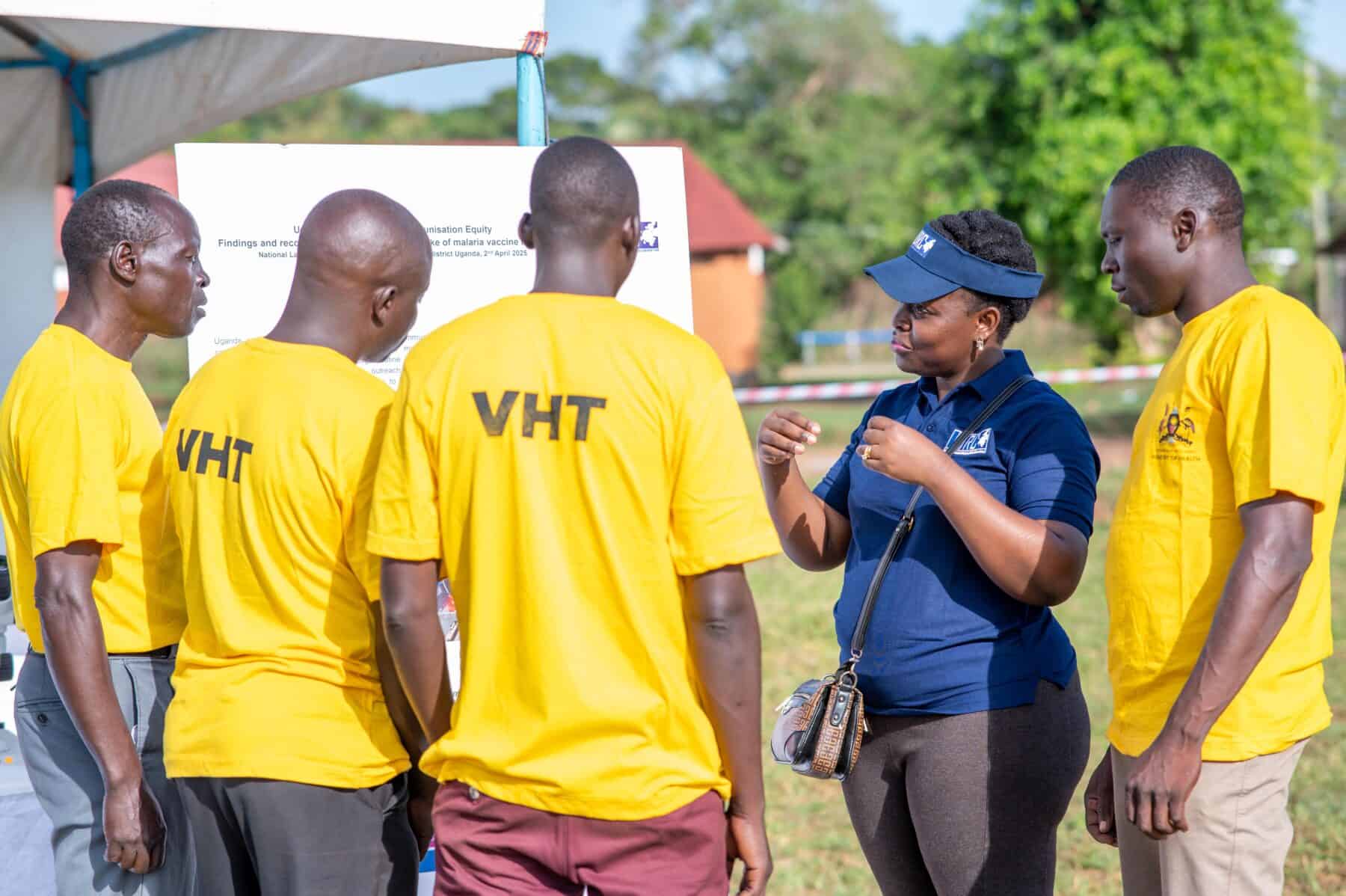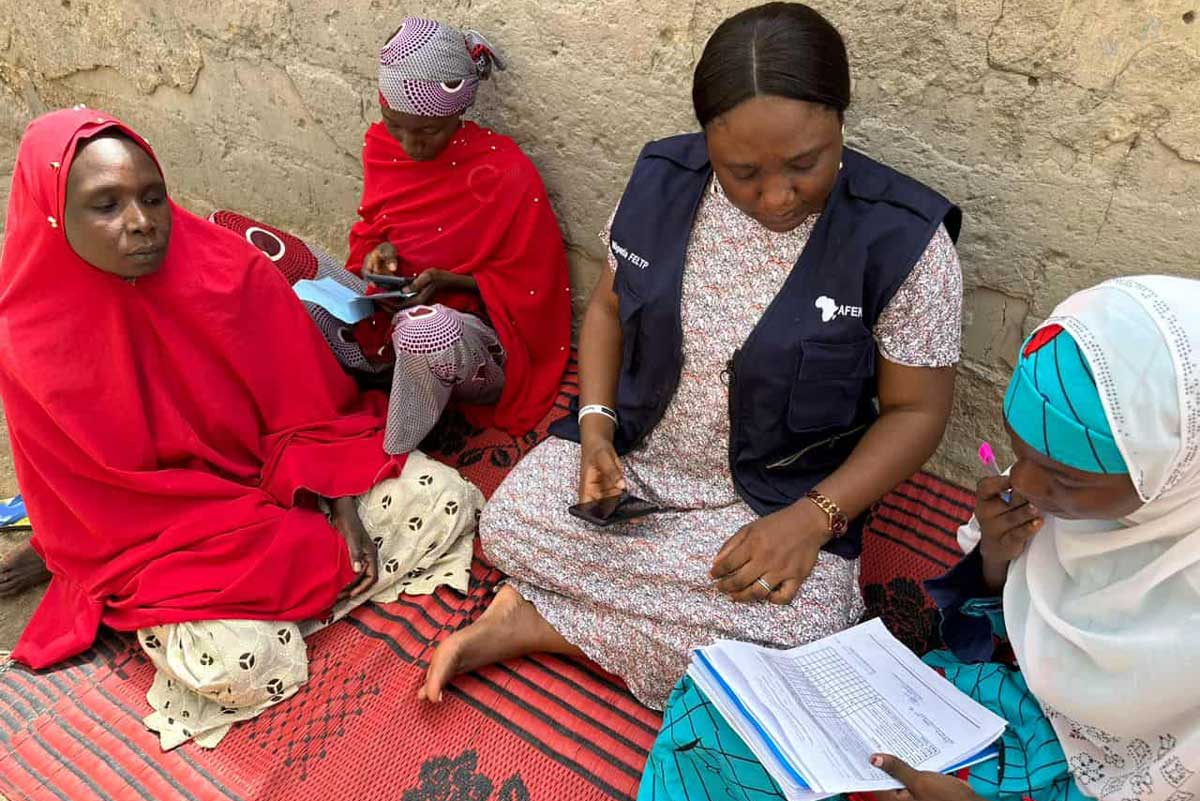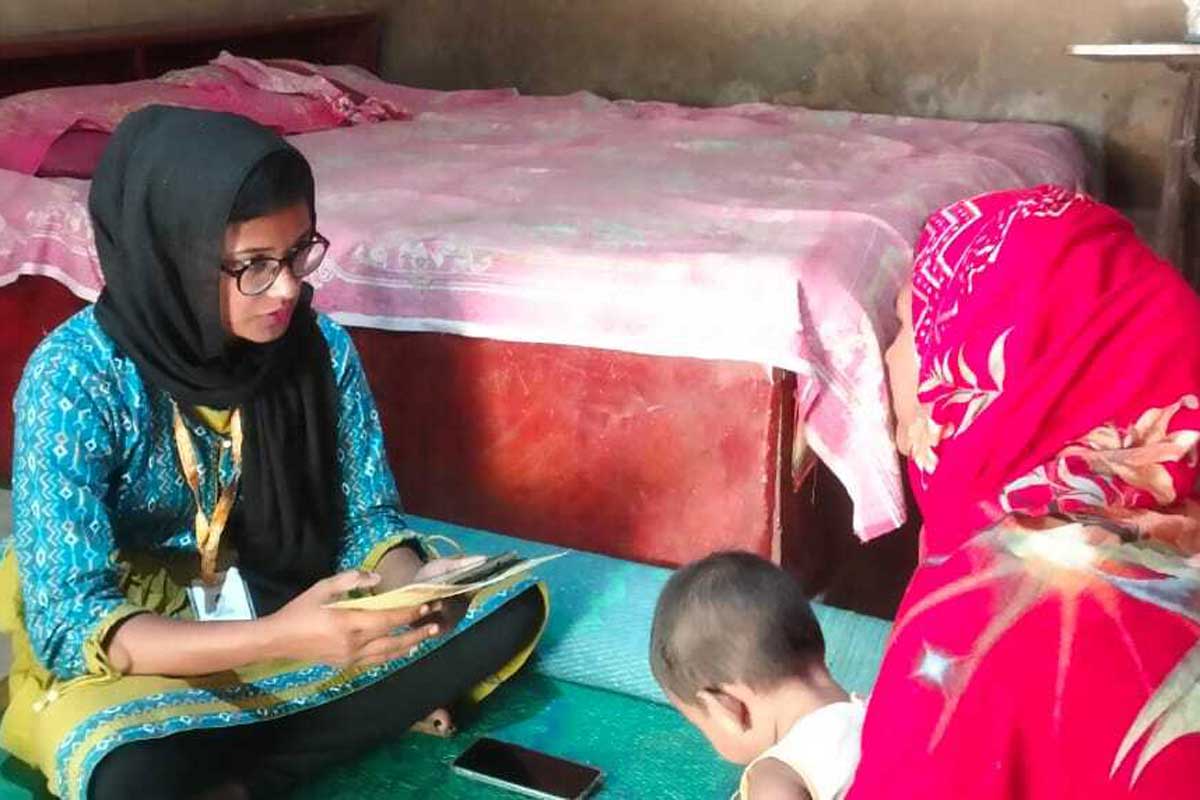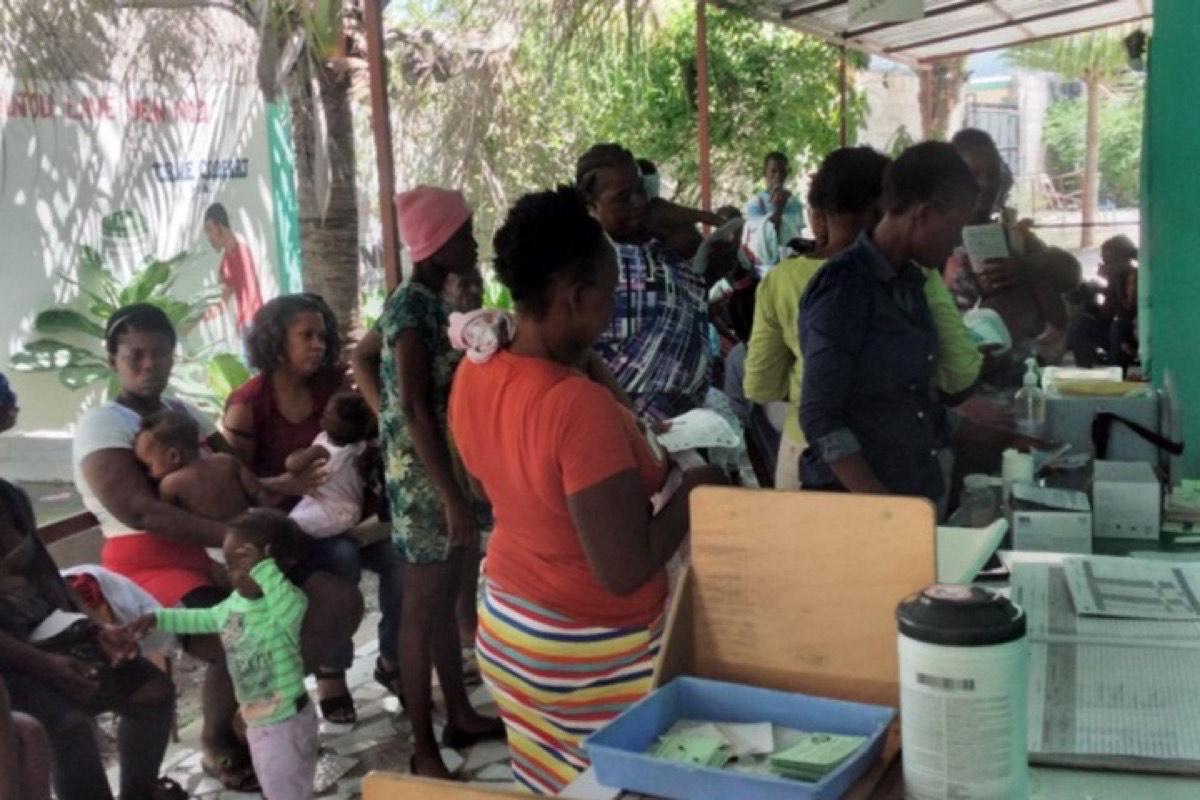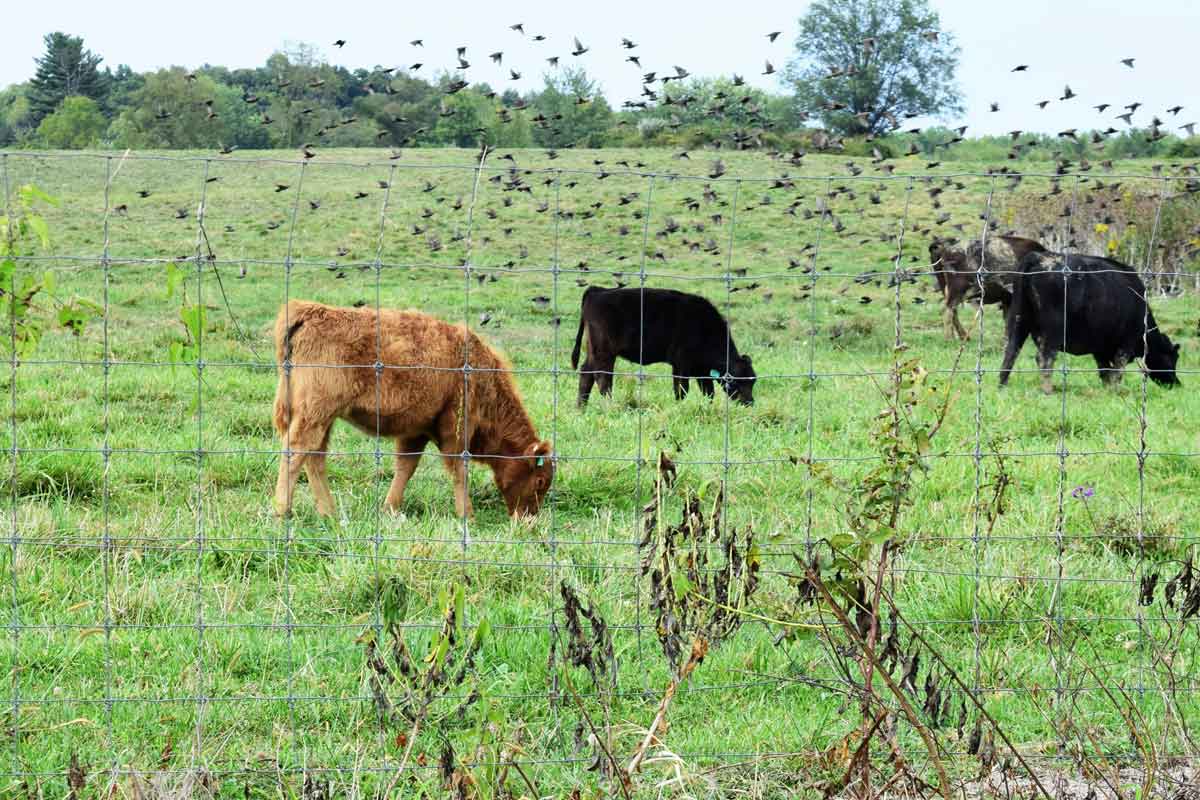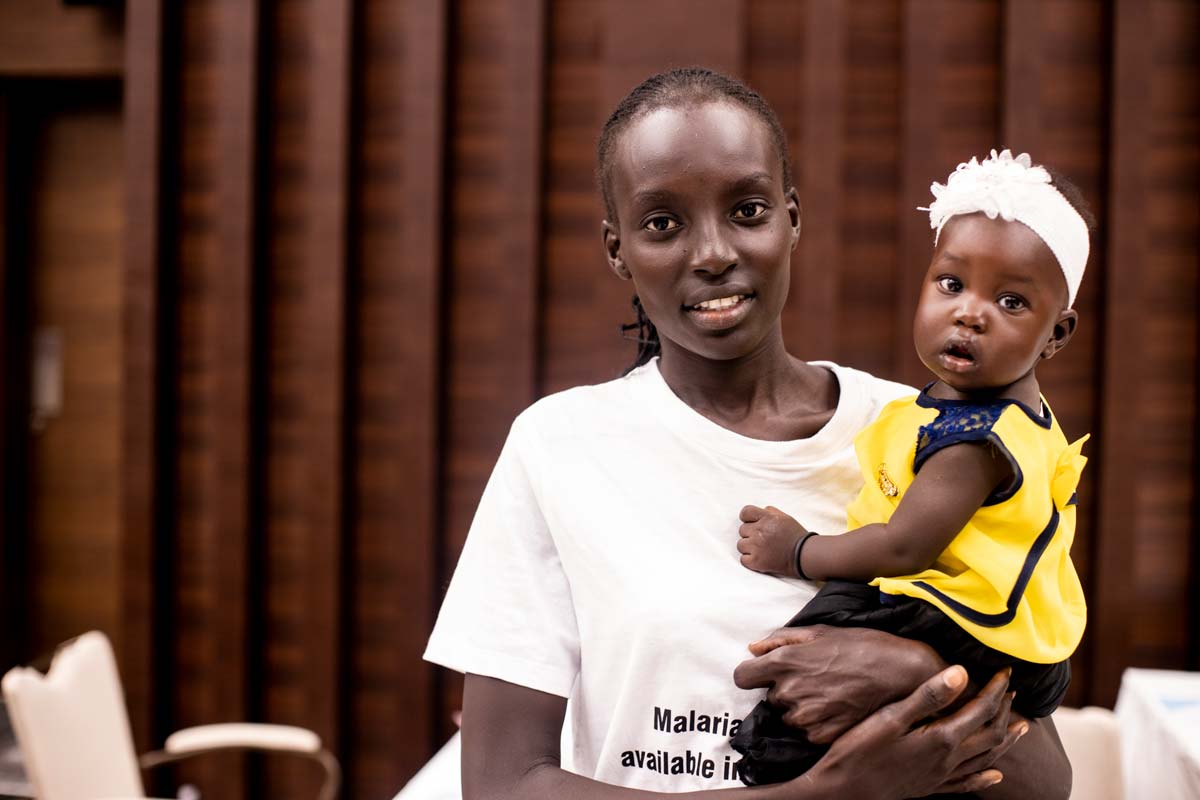Reaching every child in Ghana: a school-based strategy for routine immunisation
Schools in Ghana aren’t just registering their pupils’ attendance, they're also noting their level of protection against preventable disease.
- 3 September 2024
- 5 min read
- by JSI
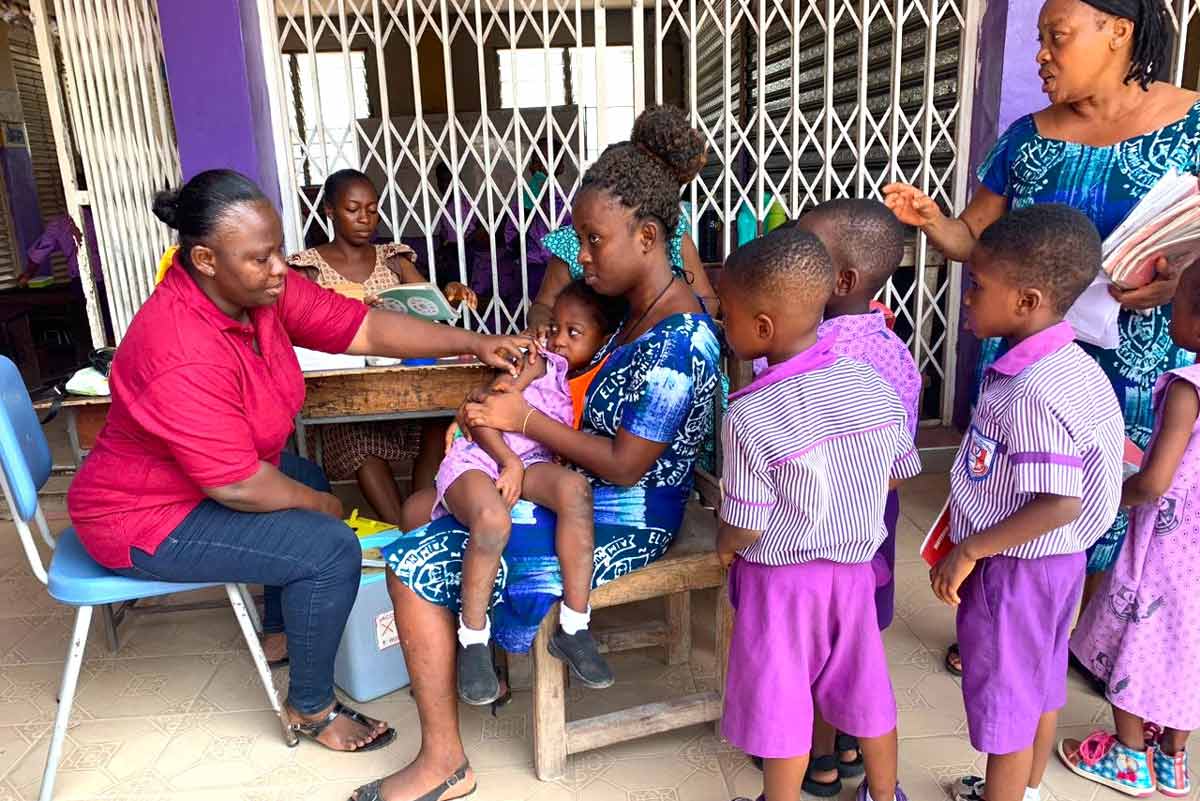
For years, Andaratu Abubakar has been dedicated to nurturing the well-being of children in Ghana. Although she initially dreamed of becoming a nurse, life’s twists and turns led her down a different path – one that would ultimately fulfil her passion for health education.
After graduating from senior high school, Abubakar enrolled in a teacher training college. Upon completing her studies, she was assigned to a school where her commitment quickly became evident. "I used to organise sessions for girls, educating them on menstrual and personal hygiene," she recalls.
Her impactful work earned her the role of health teacher, and this position, along with subsequent assignments, ignited a deep passion for promoting health among students.
“I talk to the children to help them achieve their goals in life. Some of the girls, even those facing issues at home, share their concerns with me, and together, we find solutions.”
- Andaratu Abubaka, Assistant Head Teacher, Police Barracks Basic Model School, Tamale, Northern Ghana
When Abubakar joined the Police Barracks Basic Model School in Tamale, Northern Ghana, as the assistant head teacher, she continued her health advocacy with renewed vigour.
"I talk to the children to help them achieve their goals in life," she explains. "Some of the girls, even those facing issues at home, share their concerns with me, and together, we find solutions."
Her ability to connect with both students and parents earned her their trust and made her a pivotal figure in a Gavi-funded and JSI-implemented school-based vaccination project.
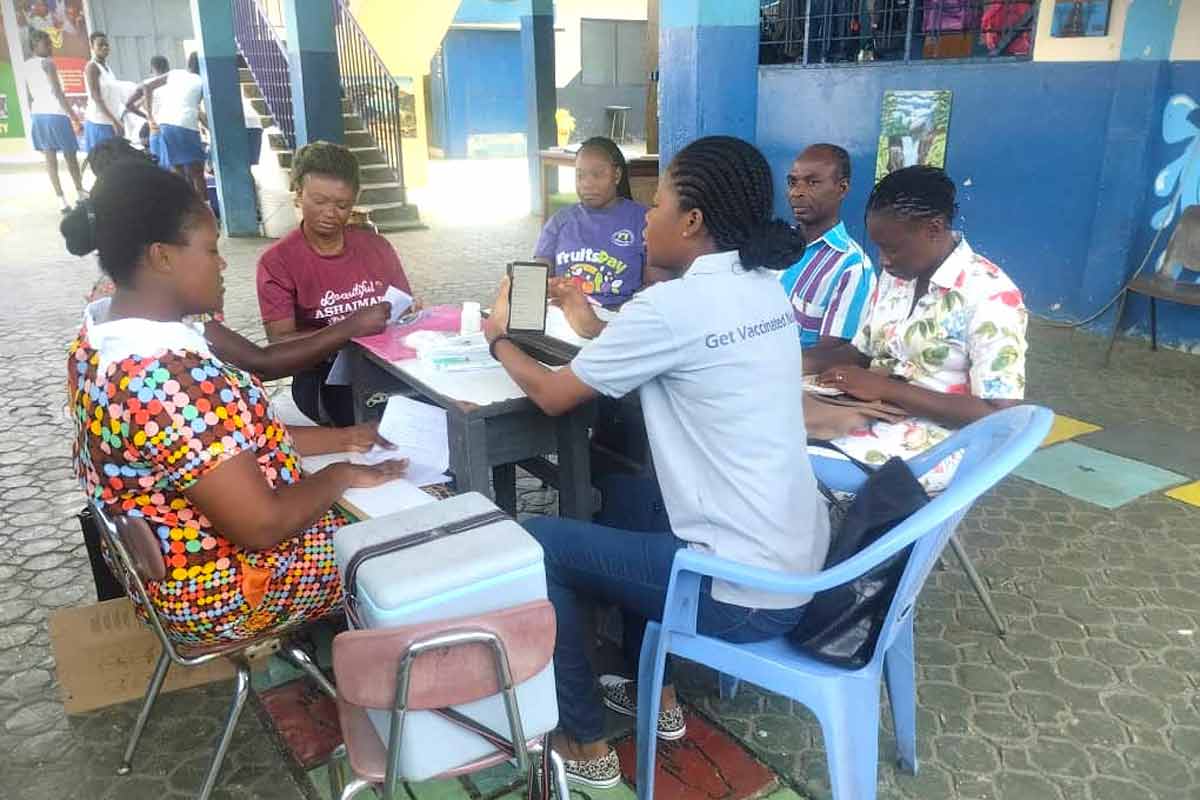
A school-based vaccination register
Central to the project’s success was a Vaccination Register, used in the classroom to track each child’s vaccination status. The vaccination register is an innovative tool developed by JSI that was initially designed for daycare centres.
It records each child’s vaccination status by referencing details from their maternal and child health booklet. This innovation was later adapted for primary schools, where it became a critical resource in identifying children aged 0 to 59 months who had missed essential vaccinations.
“I'm so happy to see that our children are immunised and healthy.”
- Andaratu Abubaka, Assistant Head Teacher, Police Barracks Basic Model School, Tamale, Northern Ghana
Abubakar played a key role in implementing the vaccination initiative for children at her school. She coordinated with parents, the parent-teacher association and health care workers to ensure a collaborative and smooth process.
"We created WhatsApp groups to communicate easily with parents, encouraging them to bring their children’s vaccination cards," she says. On vaccination day, Abubakar invited parents to the school and, alongside health care workers, educated them on the importance of immunisation.
The project was not without challenges. Misinformation, particularly the misconception that vaccination was linked to birth control or family planning, posed a significant hurdle.
"Some parents were hesitant," Abubakar recounts, "but through persistent education, we debunked these myths." She adds: “Some parents thought it would reduce their population, believing the vaccines would prevent their children from having the desired number of children in the future. But I worked with my colleagues and health care workers to correct that.” As parents learned about the benefits of vaccination, participation rates increased.
Reflecting on the project’s success, Abubakar is filled with pride. "I'm so happy to see that our children are immunised and healthy," she says. The training she received on using the vaccination register proved invaluable, enabling her to track and coordinate vaccinations with precision. Abubakar is among 60 teachers trained by the project to equip them with skills to manage vaccination registers and coordinate with health care workers.
Have you read?
Impact and prospects
The school-based vaccination programme, a collaboration between the Ghana Health Service (GHS), the Ghana Education Service (GES), the Department of Social Welfare, and other stakeholders, has been transformative.
As part of the Gavi-funded project, the initiative aimed to reach under-immunised children in Ghana’s Ashaiman and Ga South districts and the Tamale metropolis. The project’s impact was immediate, unveiling gaps in the health system and providing an alternative approach to ensuring that no child is left behind.
The regional disease control officer in the Northern Region, Fuseini Mahama, noted, “But for this project, more than 600 children in my area would have been missed.” Thanks to the vaccination register, children who might have been overlooked were identified and vaccinated, significantly boosting immunisation coverage in the targeted areas.
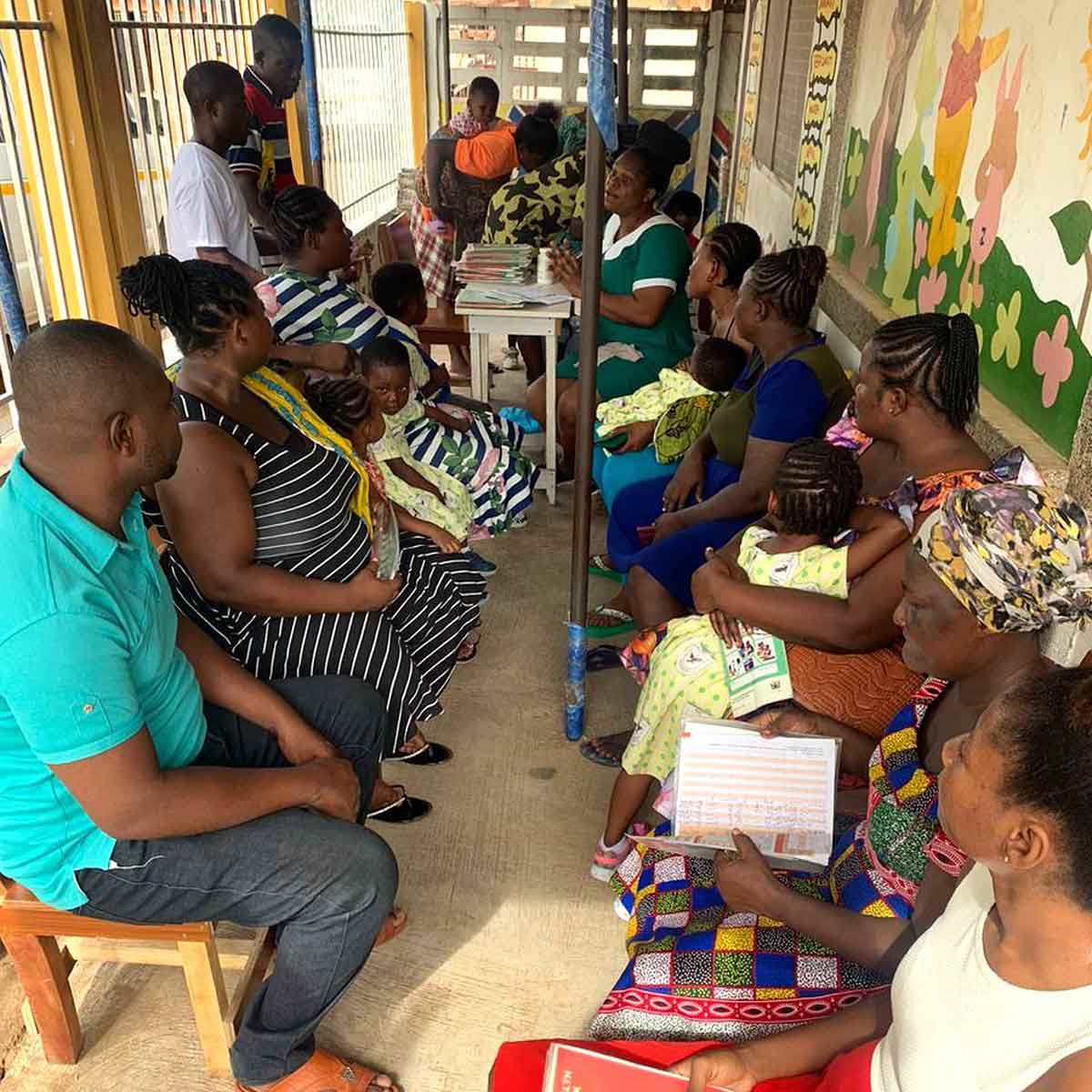
This innovation has not only ensured that children receive the vaccinations they need, but has also created a sustainable method for schools and health care workers to track and manage vaccination efforts in the future.
"The initiative’s success was a result of cross-sector collaboration and a shared commitment to ensuring that no child missed essential vaccines," says Imoro Yabubu, an education sector worker with the GES. "It has highlighted for both GES and GHS the number of children missing out on immunisations."
The project’s achievements have led to recommendations for the expansion of the approach to more schools and incorporating health record cards into admission criteria to better track vaccination status.
In just two rounds of vaccinations, 1,574 doses were administered to 1,037 children. This demonstrated the programme’s effectiveness in reaching children who had previously been missed in routine immunisation efforts.
“This project has revealed just how many children in schools are missing vaccinations. We've now implemented plans to reach these children.”
- Mubashira Mahey Mohammed, a caregiver and parent
Parents like Mubashira Mahey Mohammed, a caregiver, expressed their relief: "For various reasons, some mothers struggle to take their children to health facilities for vaccinations. School-based vaccination is ideal because, at school-going age, parents always ensure their children attend school." Patience Buahin, a health care worker with the GHS involved in the project, emphasised its broader impact: "This project has revealed just how many children in schools are missing vaccinations. We've now implemented plans to reach these children."
For Abubakar, the project is more than a professional milestone – it’s the realisation of her long-held dream to contribute to the health sector.
"If the project wasn’t done, we wouldn’t have known that the children were missing essential vaccines," she reflects. "Now, I have the skills to manage the vaccination register and work with health care workers to ensure these children get the vaccinations they need."
As Abubakar continues her work, she advocates for expanding school-based vaccination programmes to other schools.
"This project has shown us just how many children are missing essential vaccines," she emphasises. "Expanding it would help reach more children who may be missing their vaccinations."
Through her dedication, Abubakar has not only helped safeguard the health of countless children, but has also cemented her role as a leader in health education.
Written by Richard Adupong, JSI
